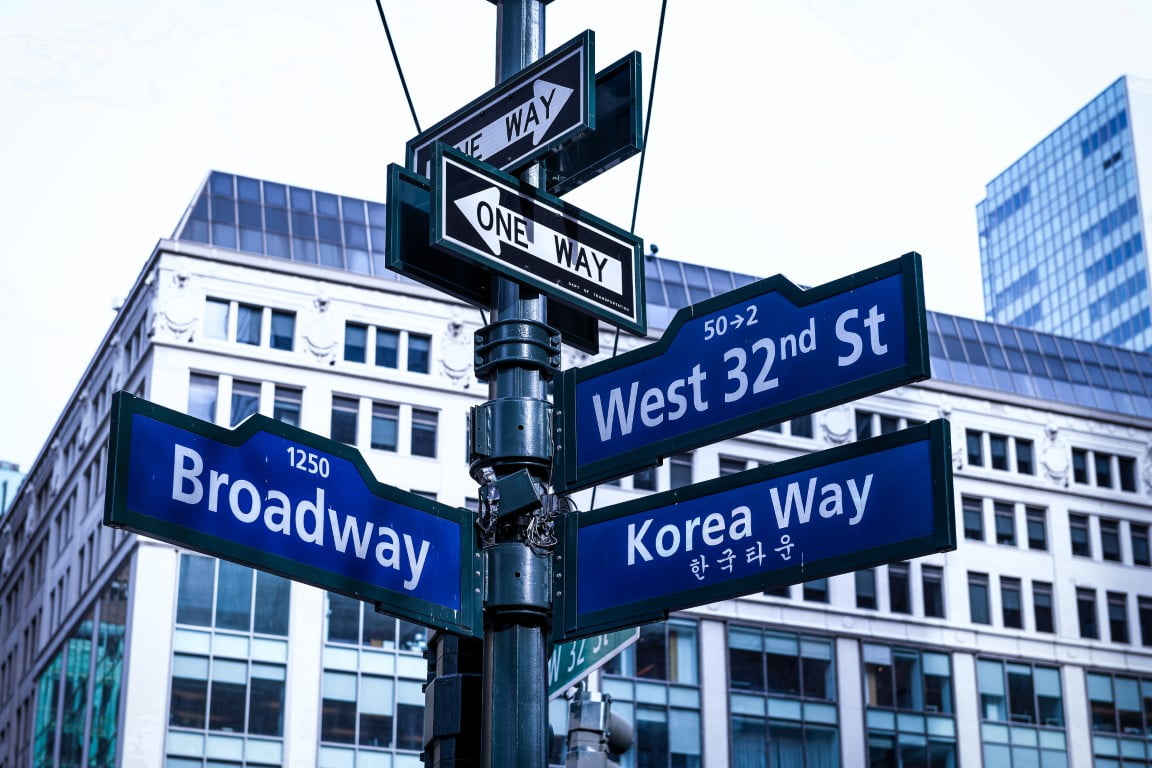Table of Contents
NYC Real Estate Invesments
There are several compelling reasons why it can be a smart decision to buy real estate in New York City. Firstly, the city has a diverse and vibrant economy that is built on several key industries, including finance, media, technology, and tourism. This means that there is a constant influx of people moving to the city for work, which can create a strong demand for housing. Additionally, New York City is home to some of the best educational and cultural institutions in the world, which can make it an attractive place to live for families and professionals. This means that there is a strong and diverse population that can support a healthy real estate market.
Furthermore, New York City is known for its stable and long-term real estate investments. Property values in the city have historically shown a steady increase over time, making it an attractive option for investors who are looking to build wealth over the long term. Additionally, the city has a robust rental market, which can make it easier for investors to generate passive income by renting out their properties. This can provide a reliable stream of income and make it easier to finance future investments. Overall, the combination of a strong economy, diverse population, and stable real estate market make New York City a smart choice for those looking to invest in real estate.
How much do you need to survive NYC?
The amount of money you need to survive monthly in New York City can vary greatly depending on your lifestyle, expenses, and living arrangements. However, according to recent estimates, the average cost of living for a single person in New York City is around $4,400 per month. This includes expenses such as rent, utilities, groceries, transportation, and entertainment.
Keep in mind that the cost of living can be higher or lower depending on where you choose to live within the city, and what type of housing and lifestyle you prefer. For example, living in Manhattan or other high-demand neighborhoods may be more expensive than living in other boroughs or suburbs. Additionally, if you plan to eat out frequently, travel often, or participate in expensive hobbies or activities, your monthly expenses may be higher than average. It’s important to carefully consider your budget and expenses before moving to New York City to ensure that you can comfortably afford your cost of living. You may want to consult with a financial advisor or accountant to help you create a realistic budget and savings plan.
A Real Estate Checklist for New Yorkers
Creating a checklist is important prior to buying real estate because it helps you organize your thoughts, prioritize your needs and wants, and ensure that you are making a well-informed decision. Buying real estate is a complex and multi-step process, and overlooking or forgetting a key detail can have significant financial or legal consequences. A checklist helps you stay organized and on track throughout the buying process.
Having a checklist can also help you identify potential problems or red flags early on in the process. For example, if a property does not meet several of the criteria on your checklist, it may be a sign that the property is not a good fit for your needs or that there are hidden issues that need further investigation. Additionally, a checklist can help you stay focused on your goals and avoid being swayed by emotion or impulse. It’s easy to become enamored with a particular property and overlook potential issues or drawbacks, but a checklist can serve as a reminder to remain objective and make decisions based on practical considerations.

The 8-Point Checklist
Determine your budget: Before you start looking for real estate in New York City, it’s important to determine your budget. Look at your income, expenses, and savings to determine how much you can afford to spend on a property.
Determine your needs: Decide what type of property you want to buy, such as a single-family home, condo, or apartment. Consider your lifestyle and needs when making this decision.
Research neighborhoods: Research the different neighborhoods in New York City to determine where you would like to live. Look at factors such as crime rates, schools, transportation options, and nearby amenities.
Find a real estate agent: Find a real estate agent who specializes in the area where you want to buy. They can help you find properties that meet your needs and budget.
View properties: View properties that meet your requirements and budget. Make a list of the properties you like and schedule viewings.
Make an offer: Once you have found a property you like, make an offer. Your real estate agent can help you negotiate the price and other terms of the sale.
Obtain financing: If you need financing to buy the property, apply for a mortgage. Compare different lenders to find the best terms and interest rates.
Close the deal: Once your offer has been accepted and you have obtained financing, it’s time to close the deal. Your real estate agent and attorney can guide you through the process and ensure all paperwork is completed correctly.
Remember, buying real estate in New York City can be a complex process, so it’s important to work with experienced professionals who can guide you through the process and help you make informed decisions.
Determine Your Budget
Determining your budget is a critical first step in the process of buying real estate in New York City. Before you begin looking at properties, it’s important to have a clear understanding of your financial situation, including your income, expenses, and savings. This will help you determine how much you can afford to spend on a property, and what kind of financing you may need to secure in order to make the purchase.
To determine your budget, start by assessing your monthly income and expenses. This includes your salary, any bonuses or commissions, and any other sources of income, as well as your monthly bills and expenses such as rent, utilities, groceries, and transportation. Subtract your monthly expenses from your income to determine your disposable income or the amount of money you have left over each month after paying your bills.
Next, consider your savings and assets. This includes any money you have in savings accounts, investments, or retirement accounts, as well as any property or other assets you own. It’s important to have a clear understanding of your savings and assets, as these can be used to help you finance a property purchase or make a down payment.
Finally, take a realistic look at the New York City real estate market and the kind of properties that are available within your budget. It’s important to keep in mind that property prices in New York City can be high, so it’s important to be realistic about what you can afford. This may involve adjusting your expectations or considering different neighborhoods or types of properties that are more affordable.
Determine Your Needs
After determining your budget for buying real estate in New York City, the next step is to assess your needs. This involves carefully considering the type of property that will best suit your lifestyle, family size, and future plans. Whether you’re looking for a single-family home, a condo, or an apartment, it’s important to consider a range of factors to ensure that you find the right fit for your needs.
Start by thinking about your current living situation and what works well for you. Do you need a lot of space, or are you comfortable in a smaller living environment? Are you looking for a property with outdoor space, or are you more interested in a building with amenities such as a gym or pool? Consider your current needs as well as any changes that may occur in the future, such as the arrival of a new family member or changes in your job or lifestyle.
It’s also important to think about your long-term goals when it comes to owning property in New York City. Do you plan to stay in the city for the foreseeable future, or are you open to the possibility of relocating? Are you looking for a property that will appreciate in value over time, or are you more interested in a property that provides a comfortable living environment for you and your family?
By taking the time to carefully consider your needs and goals, you can ensure that you find the right type of property for your unique situation. This will help you make a well-informed decision when it comes to buying real estate in New York City.
Research Neighborhoods
When it comes to buying real estate in New York City, one of the most important steps is to research different neighborhoods and find the one that best suits your needs and lifestyle. With so many different neighborhoods to choose from, it can be overwhelming to decide where to focus your search. However, by taking the time to thoroughly research and compare different neighborhoods, you can find the one that’s right for you. Start by looking at the different neighborhoods available and identifying those that align with your budget, needs, and preferences. Consider factors such as the cost of living, the type of property available, and the amenities and attractions in each area. You may also want to consider the neighborhood’s history and culture, as well as its sense of community and character.
One key factor to consider when researching neighborhoods is safety. Look into crime rates and trends, and consider factors such as the presence of security measures, lighting, and foot traffic. Additionally, consider the availability and quality of local schools, particularly if you have children or are planning to start a family in the near future. Transportation options are another important factor to consider when researching neighborhoods. Look into the availability of public transportation, including subway and bus routes, as well as bike lanes and sidewalks. Consider the commute time to your place of work or other important destinations, and factor this into your decision-making process.
Consider nearby amenities and attractions, such as restaurants, shopping, and entertainment options. Look into the availability of parks and green spaces, as well as cultural attractions such as museums and galleries. Consider your lifestyle and the activities you enjoy, and choose a neighborhood that offers easy access to the amenities and attractions that are most important to you. By carefully researching and comparing different neighborhoods, you can find the one that’s right for you and make an informed decision when it comes to buying real estate in New York City.
Find a Real Estate Agent
Working with a real estate agent is an important step in buying real estate in New York City. A good agent can help you find the right property at the right price and guide you through every step of the process, from searching for properties to closing the deal.
Froy C. Perez Tweet
The process of buying real estate in New York City can be complex, and it’s important to have a knowledgeable and experienced guide to help you navigate the process. This is where a real estate agent comes in. A good real estate agent can help you find the right property in the right neighborhood, negotiate with sellers, and guide you through the closing process. When looking for a real estate agent, it’s important to choose one who specializes in the area where you want to buy. This can help ensure that they have a deep understanding of the local market and can provide you with valuable insights and advice. Look for an agent with a strong track record of success and good reviews from previous clients.
Once you’ve found a real estate agent, take the time to meet with them and discuss your needs and preferences. Be clear about your budget, the type of property you’re looking for, and the neighborhoods you’re interested in. A good agent will listen carefully and work with you to find properties that meet your criteria. Your agent will then schedule viewings of properties that meet your requirements and accompany you to these viewings. Agents can provide you with insights into the neighborhood, the property’s history and potential, and any other relevant information. They can also help you navigate the negotiation process and work with the seller to ensure that the transaction proceeds smoothly.
Start Viewing Properties
After identifying your budget, needs, and preferred neighborhoods with the help of your real estate agent, the next step is to start viewing properties. Your agent can provide you with a list of properties that match your criteria and schedule viewings for you. When viewing properties, it’s important to be prepared and take the process seriously. Make a list of the properties you like and take detailed notes during the viewings. Ask your agent any questions you may have about the property, including its history, maintenance, and any issues that may need to be addressed. It’s also important to pay attention to details during the viewing. Check for any signs of damage or wear and tear, and make note of any repairs that may be needed. Take note of the property’s layout, size, and features, and consider how well they fit your needs and lifestyle.
In addition to viewing the property itself, take some time to explore the neighborhood. Walk around and get a feel for the area, and consider factors such as proximity to public transportation, schools, parks, and other amenities. This can help you determine whether the neighborhood is a good fit for your needs. Viewing properties is an essential step in the process of buying real estate in New York City. By being prepared, taking detailed notes, and asking questions, you can make an informed decision about which properties are right for you.

Make an Offer
After viewing various properties and finding one that meets your criteria and budget, the next step is to make an offer. Your real estate agent can assist you in determining a fair price and negotiating the terms of the sale with the seller. It’s important to be aware that the real estate market in New York City can be highly competitive, and properties can sell quickly. This means that when you find a property you like, you may need to move quickly to make an offer before someone else does.
When making an offer, consider the condition of the property, the current real estate market trends, and the seller’s asking price. Your agent can provide you with comparable sales data for similar properties in the area to help you determine a fair offer. In addition to the price, there may be other terms to negotiate, such as the closing date, contingencies, and any repairs or upgrades that need to be made before the sale can be finalized.
Once an offer has been made, the seller will have the option to accept, reject, or counter the offer. If they accept, the sale will move forward, and you will move on to the next step of the process. If they reject the offer, you may need to continue your search for a property that meets your needs and budget. If they counter the offer, negotiations will continue until both parties reach an agreement.
Obtain Financing
Obtaining financing is a crucial step in the real estate buying process, especially if you are not able to pay for the property in cash. To obtain financing, you will need to apply for a mortgage, and it’s important to start the process early. The first step is to compare different lenders to find the best terms and interest rates. In New York City, lenders may require a larger down payment than in other areas, so it’s important to consider this when comparing lenders. A larger down payment may also help you secure a better interest rate, as it shows the lender that you are a less risky borrower.
Once you have selected a lender, you will need to complete a mortgage application and provide documentation such as proof of income, tax returns, and bank statements. The lender will then review your application and determine if you qualify for a mortgage and how much you can borrow. Keep in mind that the mortgage application process can take time, and there may be additional requirements or conditions to fulfill before the lender approves the loan. It’s important to stay in close communication with your lender and provide any additional information or documentation they require in a timely manner.
Once you have been approved for a mortgage, the lender will provide you with a commitment letter, which outlines the terms and conditions of the loan. You can then move on to the next step of the process, which is closing on the property.
Sample Commitment Letter
[Date]
[Your Name and Address]
[Real Estate Lender’s Name and Address]
Dear [Borrower’s Name],
Congratulations! We are pleased to inform you that your mortgage application has been approved subject to the terms and conditions outlined in this commitment letter.
Loan Information:
Loan Amount:
Interest Rate:
Loan Term:
Monthly Payment:
Conditions:
Proof of income and employment
Property appraisal
Homeowner’s insurance policy
Title search and title insurance
Please note that this commitment letter is not a final loan approval, and the loan is subject to the conditions listed above. You must fulfill all the conditions before the closing date to receive final loan approval.
If you have any questions or concerns, please do not hesitate to contact us. We look forward to working with you to close on your new home.
Sincerely,
[Real Estate Lender’s Name and Signature]
Close the Deal
The final step in the process of buying real estate in New York City is to close the deal. Closing is the process of completing the purchase transaction and transferring ownership of the property from the seller to the buyer. This process can take several weeks and involves a lot of paperwork and legal documents. Therefore, it is essential to work with experienced professionals such as a real estate agent and attorney to guide you through the process.
During the closing, you will review and sign numerous legal documents, including the mortgage, deed, and various disclosure forms. Your attorney and real estate agent will ensure that all the paperwork is in order and that you understand the terms of the agreement before you sign. You will also be required to provide a cashier’s check for the down payment and closing costs.
After all the paperwork is signed and the funds are transferred, you will receive the keys to your new property. Congratulations, you are now a New York City property owner! It’s important to note that as a property owner, you will be responsible for property taxes, homeowner’s insurance, and maintenance costs. But owning real estate in New York City can be a valuable investment and a source of pride and satisfaction for years to come.
Bottom Line
Buying real estate in New York City can be a complex and daunting process, but with careful planning and the right team in place, it can also be a rewarding investment. The first step is to determine your budget, taking into account your income, expenses, and savings to realistically determine what you can afford. Once you know your budget, you should consider your needs and preferences for the type of property you want to buy, whether it’s a single-family home, condo, or apartment. Next, research the different neighborhoods in New York City to find the best location for your lifestyle and future plans, taking into account factors such as crime rates, schools, transportation options, and nearby amenities.
Finding a reputable real estate agent who specializes in the area you want to buy is an essential next step. They can help you identify properties that meet your needs and budget, and guide you through the process of making an offer, negotiating the price and other terms, and obtaining financing if needed. Once you have found the right property, you can make an offer and work with your real estate agent and attorney to complete the paperwork and legal documents necessary to close the deal. While the process can be lengthy and complex, with careful planning and the right professionals on your team, buying real estate in New York City can be a wise investment and a fulfilling experience.


